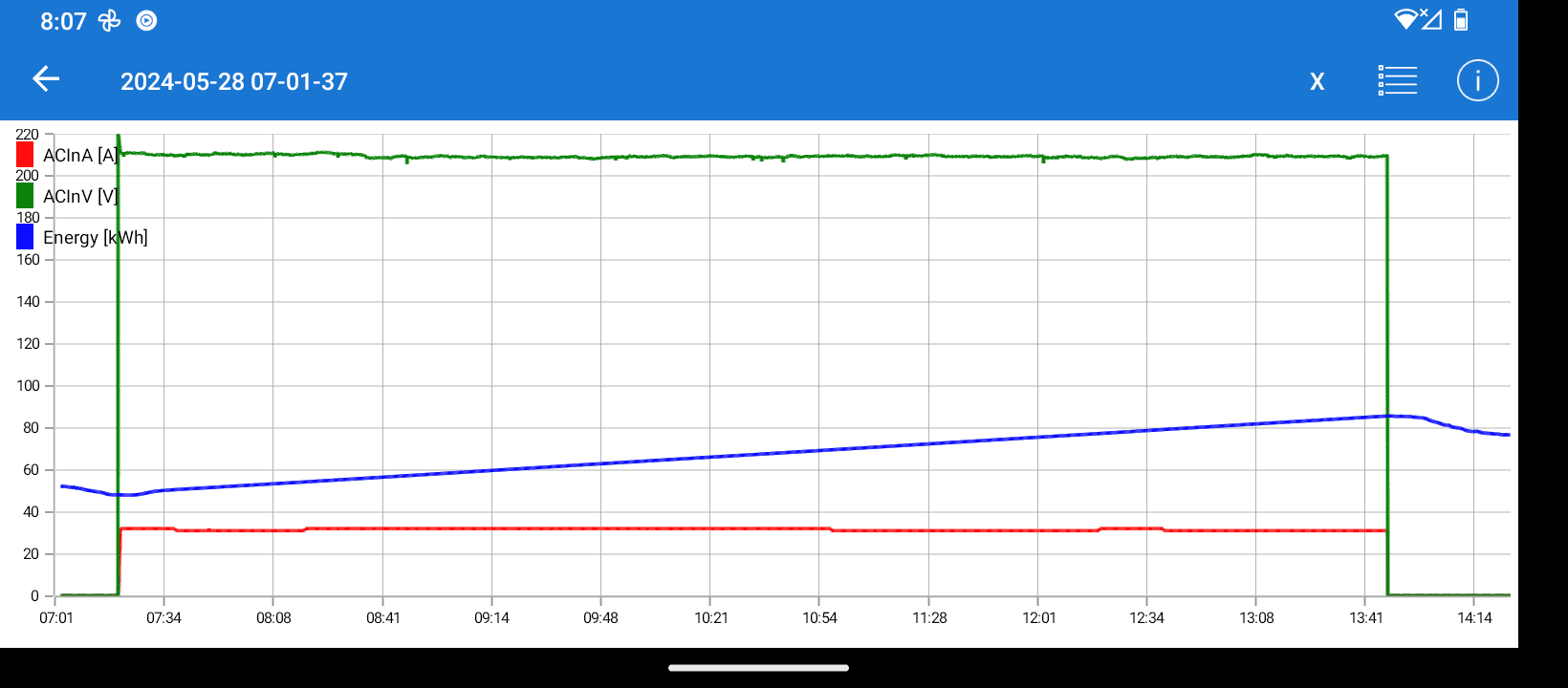Nklem
Active member
- First Name
- Norm
- Joined
- Jan 17, 2023
- Threads
- 10
- Messages
- 42
- Reaction score
- 46
- Location
- Maine Coast
- Vehicles
- 23 Lightning XLT SR, Max Tow, 24 Silverado EV 4WT
- Occupation
- Engineer
- Thread starter
- #1
What fun. I left my empty android phone with CarScanner pro on my truck all day at work while it charged. The data is only as good as Ford reports but good enough.
so for example, my inlet volts were 208.8 and current 32.0 Amps for a portion of the day. It fluctuated from 31-32 amps. I chose a moment in time, 9:48 AM for a calc time. So we had 208.8V and 32 Amps for an input measured by the Truck at 6.656 kWh. I also took that moment to see what the trucks DC charger was putting on the the battery, it was 351.7V and 17.3 Amps which is 6.08441 kWh. So the efficiency is 91.4% efficient At the level 2 to The battery.
I also started at 48.04 kWh in the pack and ended with 85.62 over 387.5 minutes. I am downloading the CSV file to excel to do a real calculation. I bet it’s 90% or better.
So I think Fords issue is somewhat of an inaccurate battery kWh capacity. Anyway it’s about 90% or a little more. No cooling came on today either. It all went to the battery.
I will try again with my ChargePoint next weekend. I may have to do a full charge….since I have to do a 198 mile trip to Grandmas.
this is so fun…..

so for example, my inlet volts were 208.8 and current 32.0 Amps for a portion of the day. It fluctuated from 31-32 amps. I chose a moment in time, 9:48 AM for a calc time. So we had 208.8V and 32 Amps for an input measured by the Truck at 6.656 kWh. I also took that moment to see what the trucks DC charger was putting on the the battery, it was 351.7V and 17.3 Amps which is 6.08441 kWh. So the efficiency is 91.4% efficient At the level 2 to The battery.
I also started at 48.04 kWh in the pack and ended with 85.62 over 387.5 minutes. I am downloading the CSV file to excel to do a real calculation. I bet it’s 90% or better.
So I think Fords issue is somewhat of an inaccurate battery kWh capacity. Anyway it’s about 90% or a little more. No cooling came on today either. It all went to the battery.
I will try again with my ChargePoint next weekend. I may have to do a full charge….since I have to do a 198 mile trip to Grandmas.
this is so fun…..

Sponsored
Last edited:

